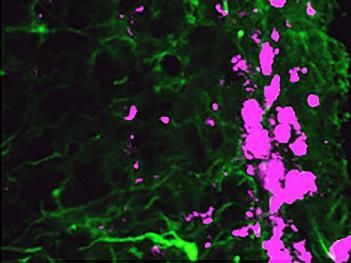ExonHit Therapeutics Accelerates its Clinical Development Programme in Alzheimer's Disease
EHT 0202 shows potential for Alzheimer's disease and other neuro-degenerative and cognitive
ExonHit Therapeutics announced that it plans to start a Phase IIa proof-of-concept study in Alzheimer's disease with EHT 0202, its most advanced compound in development in the early part of 2005. The company has already demonstrated that EHT 0202 improves attention and cognition and has neuroprotective properties in animal models.
Based on these data it is likely that EHT0202 may prove suitable for symptom relief and as a disease modifying agent in patients with Alzheimer's disease. Preclinical studies with EHT0202 have revealed protection from cell death following induction of different stresses (ischemia or toxic treatment) as well as improved learning and cognitive performance in aged rats (water-maze and Barnes tests) and mild anxiolytic properties at higher dosages (10mg/kg). Toxicological studies have also demonstrated that EHT 0202 is well tolerated and well absorbed when given orally. A Phase I single dose study by oral route has just been completed and confirmed that EHT 0202 is also well tolerated (Maximum Tolerated Dose of 120 mg) and well absorbed via oral administration in healthy volunteers.
Based on these data, a Medical Advisory Board confirmed its interest in initiating a Phase IIa proof-of-concept study with EHT 0202. The study is designed as a randomized, double-blind, placebo-controlled, parallel group, multicentre study evaluating the effects of three doses of EHT 0202 on the cognitive functions and psychomotor performance of patients suffering from probable, mild to moderate Alzheimer's disease. It will enroll 40 patients that will be treated for 28 consecutive days followed by a 14 days observation period without study drug. The study is anticipated to start in early 2005.
"Our goal is to evaluate whether EHT0202 improves the performance of patients suffering from cognitive disorders on a selected number of tests focusing on attention and learning capabilities", commented Philippe Guillet, VP Clinical Development at ExonHit. "Current treatments are clearly not yet satisfactory and there is a large medical need for drugs with new mechanisms of action that can be associated with acetylcholine esterase inhibitors", he added.
"ExonHit has developed a powerful technology based on RNA splicing analysis, which pinpoints specific targets for therapeutic intervention. This technology combined with our internal medicinal chemistry capabilities will allow us to bring to the clinic additional drugs either with our own resources or through partnerships. If this proof-of-concept study is positive", declared Bruno Tocqué, CEO ExonHit Therapeutics, "we intend to partner out EHT0202 for Alzheimer's disease and other types of dementia".
Topics
Organizations
Other news from the department research and development

Get the life science industry in your inbox
By submitting this form you agree that LUMITOS AG will send you the newsletter(s) selected above by email. Your data will not be passed on to third parties. Your data will be stored and processed in accordance with our data protection regulations. LUMITOS may contact you by email for the purpose of advertising or market and opinion surveys. You can revoke your consent at any time without giving reasons to LUMITOS AG, Ernst-Augustin-Str. 2, 12489 Berlin, Germany or by e-mail at revoke@lumitos.com with effect for the future. In addition, each email contains a link to unsubscribe from the corresponding newsletter.
Most read news
More news from our other portals
Last viewed contents
Polymerase
Urine analysis enables cardiovascular risk assessment
Analytica 2014: New special exhibit for occupational health and safety

How a protein promotes cancer progression
Anthroposophical_medicine





















































